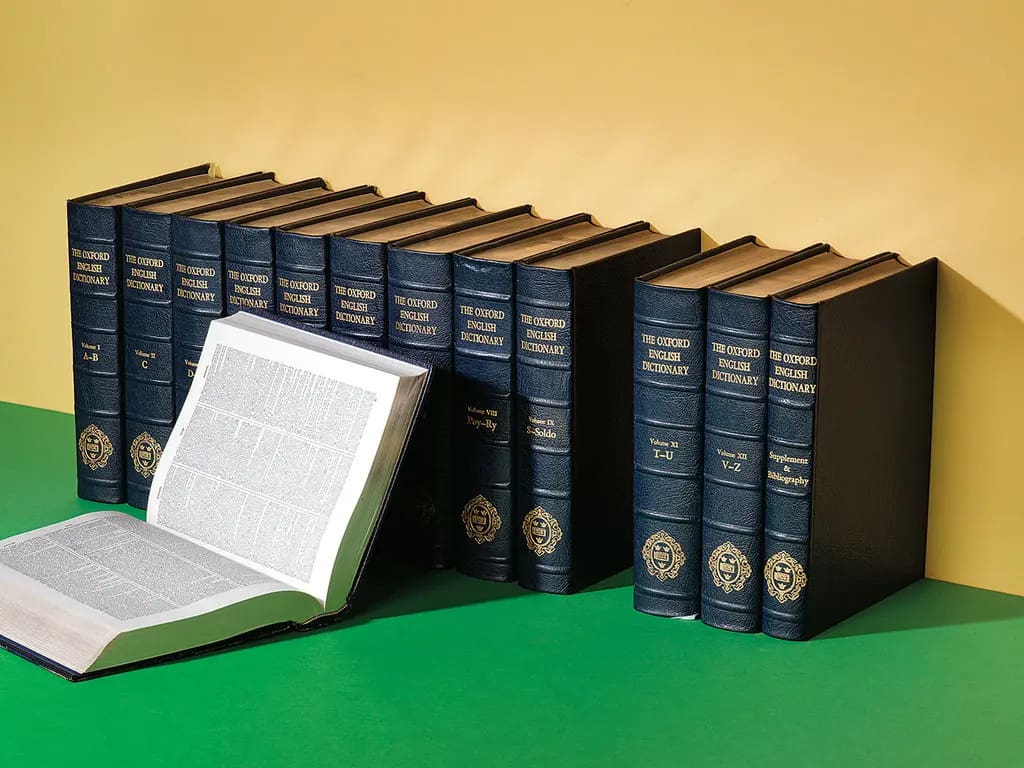The Oxford English Dictionary does not only focus on “high-brow” words but also on words used widely in everyday language. Besides, this includes slang, colloquialisms, and words from regional dialects. The OED is interested in documenting the full range of the English language. Regardless of its origin or level of formality. Hence, this is why it includes words from all periods of the language. For example, modern slang and colloquial terms might not have been considered “proper” English in the past. Though, now they are widely used and recognized as part of the language.
Additionally, the Oxford English Dictionary (OED) is the most comprehensive and authoritative dictionary of the English language. Every year the lexicographers at the OED update the dictionary with new words, senses, and sub-entries.
Many of the terms provide insight into language usage in the U.K. because the OED is based in England. But others appear to have originated in America and across the pond. Here are a couple of the new terms, along with the Oxford definition out of a total of approximately 700 words.

1. Aestel
an artefact used to follow along or keep one’s place when reading a manuscript
2. Agrivoltaics
the simultaneous use of a piece of land for both agricultural and photovoltaic solar power generating.
3. Air fryer
a tiny convection oven, often used to fry meals with a little amount of oil.
4. Captain Obvious
a sarcastic or derogatory term for someone who states the obvious or superfluous.
5. CODA
CODA is an acronym that stands for “Children of Deaf Adults”. It refers to a person who has one or more parents or guardians who are deaf or hard of hearing.
6. Crash Diet
a diet that severely restricts calorie consumption over a brief period of time with the goal of causing very quick weight loss.
7. Dap
a casual greeting, recognition, or affirmation usually including palm slapping, fist bumps, or finger snaps.
8. Final girl
a stock female character, usually smart, serious, careful, and chaste, who survives to defeat or flee the attacker after the death of other characters.
9. Halfsies
halves, two equal shares, or parts
10. Jag
Scottish term for a hypodermic injection, especially a vaccination
11. Keep Cup
a reusable cup
12. Mononym
a one-word name by which a person, particularly a celebrity, is known.
13. Parasocial
Establishing a relationship characterized by the one-sided, unreciprocated feeling of intimacy felt for a well-known or famous figure.
14. Pinkie Promise
a promise made while uniting one’s little finger with that of another person, and considered as especially binding or sincere.
15. Porch Pirate
a person who loots packages that have been delivered and left unattended outside the recipient’s home, business, etc.
16. Sh**housery
something regarded as despicable, unacceptable, or bad.
17. Superyacht
an exceptionally large or powerful yacht.
18. Tailgate Party
a party commonly held in the car park of a stadium before a sports occasion at which food and drink are served at the open tailgate of a motor car.
19. Tallywacker
the penis or a stupid, annoying, or otherwise objectionable person (especially a man)
20. Textspeak
Language, regarded as characteristic of text messaging and other forms of electronic communication, often consists of abbreviations, acronyms, emoticons or emojis, etc.
Last but not least, these newest additions illustrate the progress of the English language as well as the possible uses and interpretations of the words.
Nonetheless, not all the newly added words are modern. For instance, Aestel is an example of an archaic word. Although, this word already exists in the Oxford English Dictionary. Moreover, it is a term that first appeared in King Alfred’s preface to his 9th-century translation of Pastoral Care, a tome by Pope Gregory I that dates back to the 6th century. However, the exact meaning of the word remains unknown. But it is frequently considered a pointer or handle for a pointer used to follow along or keep one’s place when reading a manuscript.
Further, the inclusion of such words in the OED highlights the historical context and evolution of the English language and the importance of preserving and understanding the historical use of words. Additionally, other terms have been positioned underneath already-existing entries.

































